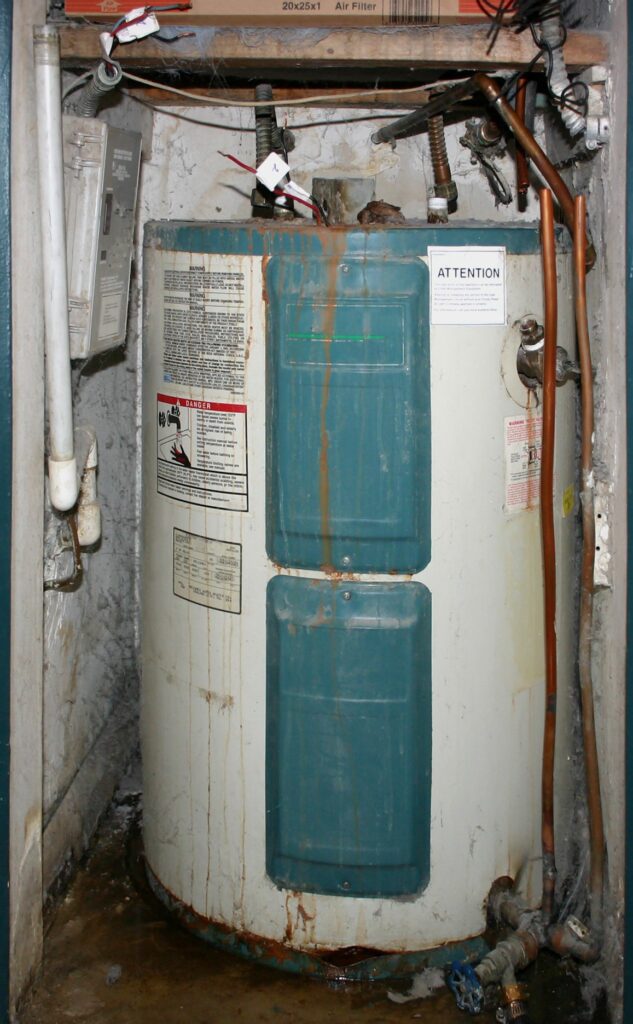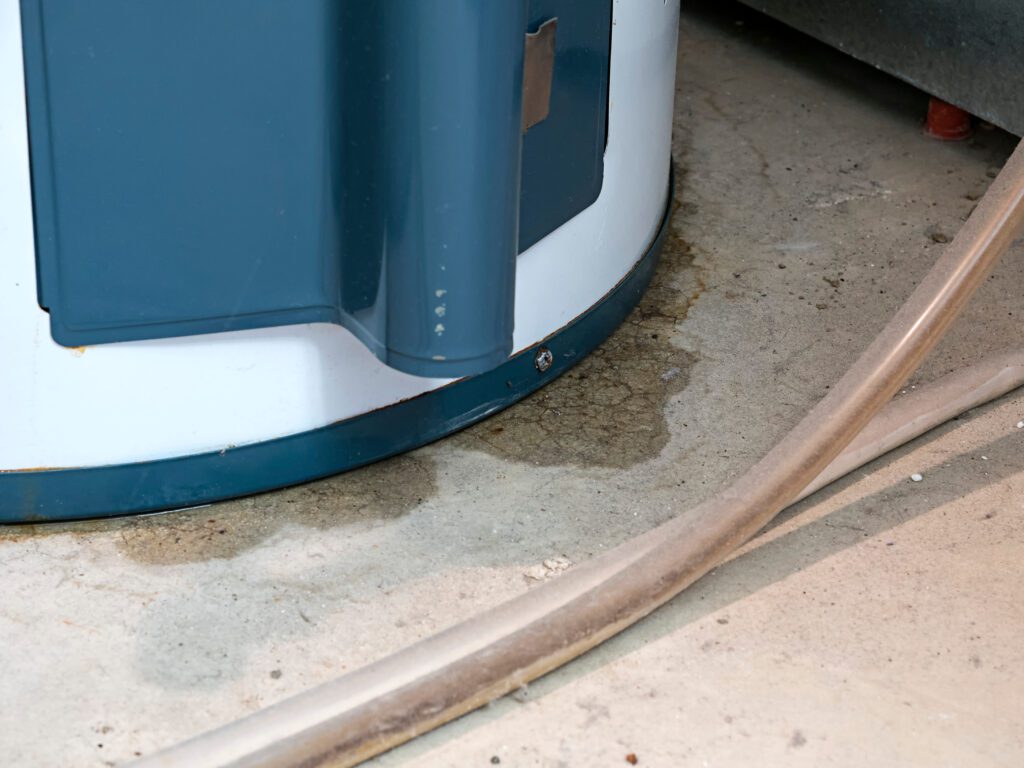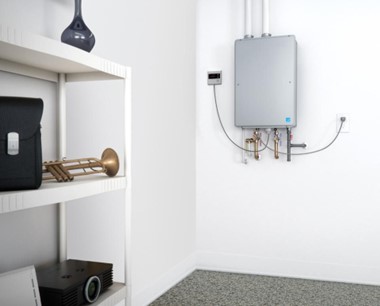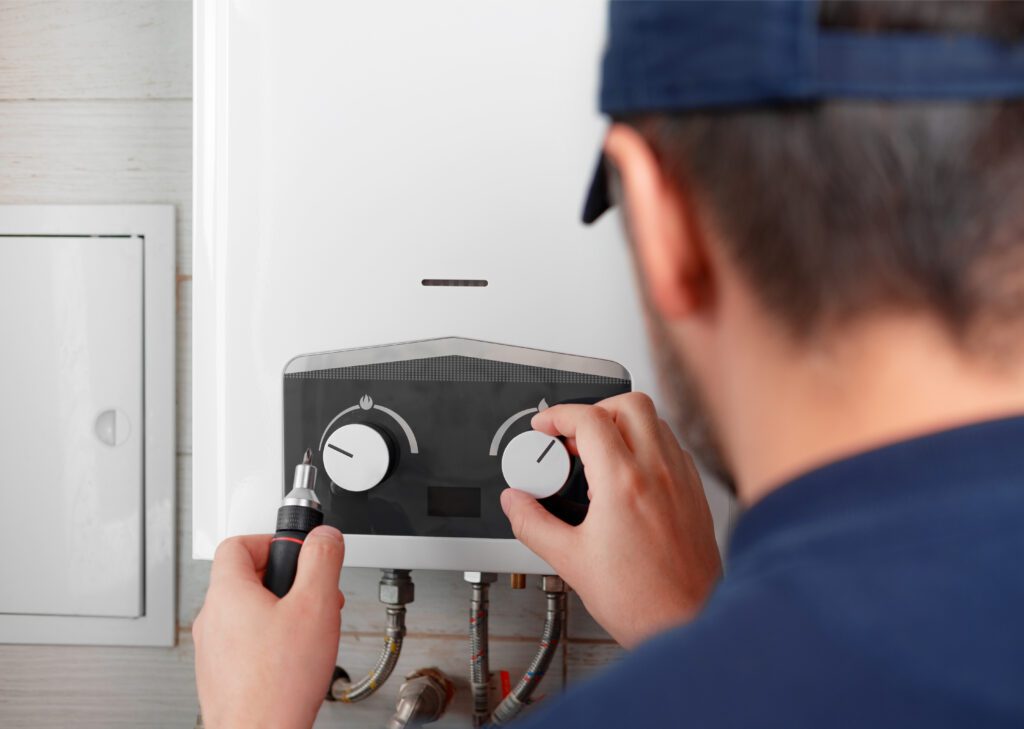5 Indicators You Can’t Ignore for Water Heater Repair
Are you worried that your water heater may be on its last leg? If so, then it’s important to be aware of the warning signs that could indicate a need for water heater repair. From strange noises to an unreliable hot water supply, there are several telltale indicators that can alert you to an impending water heater issue. Read on to discover five of the most common symptoms that signify you may need to have your water heater serviced.
1) Increased Heating Time
If you find yourself waiting longer and longer for your water to heat up, it could be a sign that your water heater is in trouble. Increased heating time is a common symptom of a failing water heater, and it’s not something you should ignore.
There are a few reasons why your water heater might be taking longer to heat up. One possibility is that the heating element is wearing out or malfunctioning. Over time, the heating element can become coated with sediment, which reduces its ability to heat the water efficiently. Another possible cause is a buildup of mineral deposits in the tank, which can also hinder the heating process.
Regardless of the cause, if you notice that your water is consistently taking longer to heat up, it’s a good idea to have your water heater inspected by a professional. They can diagnose the issue and recommend the appropriate repairs. Ignoring the problem could lead to further damage and potentially even a complete breakdown of your water heater.
2) Rust or Corrosion on the Tank
Rust or corrosion on your water heater tank can be a major red flag that your unit requires repair. While it may be easy to dismiss some rust or discoloration as normal wear and tear, it’s important not to ignore it. Rust can weaken the tank and cause leaks, leading to potential water damage in your home.
Corrosion can also be a sign of a failing water heater. It can indicate that the sacrificial anode rod, which is responsible for attracting corrosive elements in the water, is no longer functioning effectively. When the anode rod is depleted, the tank itself becomes vulnerable to corrosion.
If you notice any rust or corrosion on your water heater tank, it’s crucial to address the issue promptly. Call a professional water heater repair technician who can assess the situation and determine the best course of action. They may recommend replacing the anode rod or even the entire tank if the corrosion is severe. Acting early on can help prolong the lifespan of your water heater and prevent further damage to your home.

Rust and/or corrosion on your water heater is an indicator that something is likely wrong with the unit and requires immediate service and attention.
3) Strange Noises Coming from the Tank
Is your water heater making strange noises that have you on edge? Don’t worry, you’re not alone. Strange noises coming from the tank are one of the most common indicators that your water heater needs repair. These noises can range from banging and clanging to hissing and popping sounds. While it may be tempting to ignore these sounds and hope they go away, it’s important to address them promptly to avoid further damage to your water heater.
One possible cause of these strange noises is a buildup of minerals and debris at the bottom of the tank. Over time, these items can accumulate, creating a layer of sediment that interferes with the proper functioning of the heater. This accumulation can result in the tank overheating, leading to those unsettling sounds. Another potential culprit is a faulty heating element or a loose part inside the tank.
4) Leaks Around the Water Heater
Leaking around your water heater is not a symptom you can afford to ignore. Even a small leak can quickly escalate into a major issue, causing water damage to your home and potentially leading to costly repairs that are commonly not covered under insurance. If you notice water pooling around the base of your water heater or dripping from the pipes or fittings, it’s important to take immediate action.
There are a few potential causes of leaks around your water heater. It could be a loose or damaged pipe connection, a faulty temperature and pressure relief valve, or even a cracked tank.
If you see this occurrence, the first step to mitigation is to turn off the power and water supply to the water heater. This will help minimize any potential damage while you wait for a professional to assess the situation. They may need to replace a faulty valve, tighten loose connections, or, in some cases, replace the entire unit. It’s important not to attempt any repairs yourself, as working with water heaters can be dangerous without the proper knowledge and experience!

If you notice your water heater leaking, even a little bit, it could be a sign of something greater (and potentially more costly) about to occur. Call your local professional immediately!
5) Age of the Water Heater
Over time, your water heater will inevitably start to show signs of age. The average lifespan of a water heater is around 8 to 12 years, depending on the type and maintenance. As your water heater gets older, it becomes more prone to issues and inefficiencies. It’s important to be aware of the age of your water heater and the potential problems that can arise.
As mentioned, the most common issue with an older water heater is sediment buildup. Excess accumulation can hinder the heating process and decrease the efficiency of the unit, resulting in longer heating times, reduced hot water supply, and even strange noises. Additionally, an aging water heater may develop leaks or corrosion, which can lead to water damage in your home.
If your water heater is nearing the end of its expected lifespan, it’s wise to consider replacing it before it fails completely. Upgrading to a new, energy-efficient water heater can not only prevent unexpected breakdowns but also save you money on your utility bills.
We Can Help
There are several indicators that your water heater may need repair. From increased heating time to strange noises coming from the tank, these signs should not be ignored. Rust or corrosion on the tank and leaks around the water heater are also red flags that should be addressed promptly. Additionally, considering the age of your water heater is important, as older units are more prone to issues and inefficiencies.
If you notice any of these symptoms, act immediately. Ignoring the warning signs can lead to more extensive damage, costly repairs, and potential water damage in your home. Contact us today and we’ll be happy to review your situation with practical solutions for your budget and needs!












